June 7, 2022
Without a doubt, the COVID-19 pandemic has been catastrophic for public health.
And I’m not just talking about the illnesses and deaths.
More than a year ago, I published the article—”9 Ways To Maintain Your Sanity & Happiness During The COVID Pandemic (& The Real Deal On The Psychological & Societal Impact Of COVID)”—which was all about the unseen impacts of the COVID lockdown on psychological, emotional, and physical health.
The direct consequences of the pandemic and lockdowns on loneliness and mental health, children’s health, substance abuse, domestic violence, and more have been dire. In that article, I shared that I hoped we were at the end of the crisis, and while most restrictions have in fact been lifted, the public health crisis is far from over.
Early on, when everything was beginning to shut down, the grocery store shelves began to empty out. A toilet paper shortage was national news, with entire articles devoted to it in legit news sources like The Washington Post and Forbes. Prices skyrocketed on Amazon. And of course, given the subject matter, the jokes went on and on.
Now, more than two years later, there is another shortage at the center of national news—and this shortage has far more serious consequences: There is not enough infant formula to feed America's children.
I won’t insult you by going into why this shortage is catastrophic. Babies need formula. While breast milk is the ideal first food, there are a multitude of reasons why it can’t be the only way to feed infants.
As you may know, I've covered infant nutrition in the past, and it was the entire focus of this article and podcast:
Now, you may remember that article from the cover image, which is a picture of me dressed as a giant baby who is eating baby food (if you haven’t seen it, I bet you’re clicking now). While I don’t in fact don baby gear while I do it, I regularly do consume baby food from my friends at Serenity Kids, which is chock-full of nutrition and delicious (you can save 15% on your first order with code BEN). Not a joke. I eat the stuff every day. And even though my kids are 14 now, I work with a lot of moms who are expecting, or families who have young children or babies. So, I'm always keeping my ears to the ground, so to speak, on what's out there in the baby food sector.
While myself with a giant pacifier may be somewhat ridiculous, the current situation with infant formula is no laughing matter. In this article, I’m going to give you an overview of what’s going on, why it’s so important, and what you can do if you’re a parent or know a parent who is affected by the nationwide formula shortage.
What Should Babies Be Eating?
I remember when I was a young boy all the way up through adolescence that I would grocery shopping with my parents in Lewiston, Idaho, and I would rush to put the two big ol' milk cartons in the cart because I loved the big plastic jugs of 2% commercial milk so much. I chugged milk all day long.
Then I would go to bed every night with a tummy ache. My parents seemed to think I just got the stomach flu a lot. I also had terrible acne. My immune system was wrecked. And all the antibiotics I got put on didn't help matters.
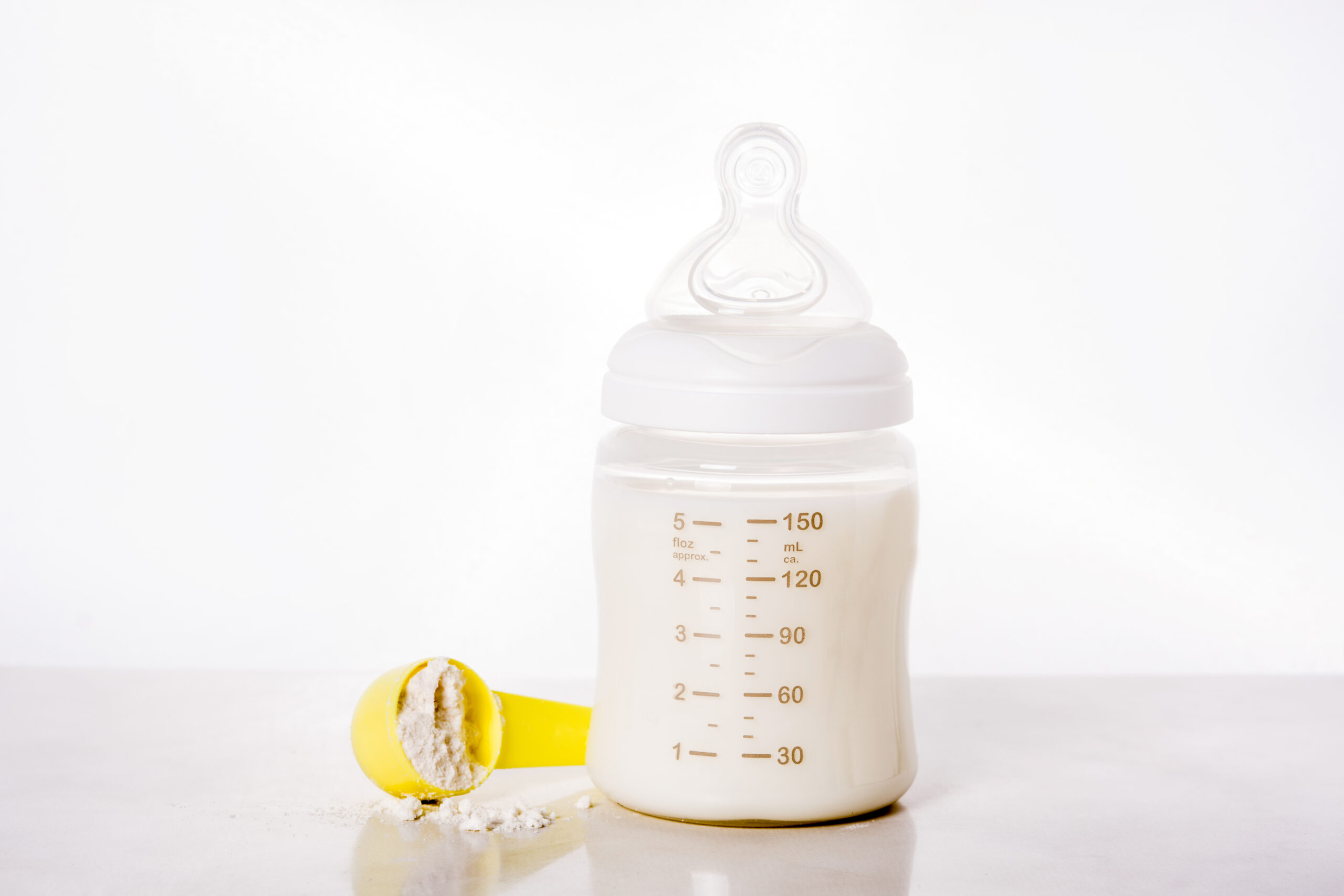 It took me until I was nearly 20 years old to realize I was dairy insensitive and aside from raw, fermented dairy with live enzymes that digest lactose, I'm pretty darn bloated, gassy, and grumpy when I eat a bunch of regular ol' milk or cheese, for example. Before I realized that, I just grew up punishing milk every day to make me big and strong. This is a pretty widely-held universal belief, right? Milk does a body good? Well, although milk (preferably the natural variety) is fantastic for muscle building and making a small animal into a big animal (also why dairy can make fat people much more fat), its health implications are more complicated than that, particularly when it comes to newborns.
It took me until I was nearly 20 years old to realize I was dairy insensitive and aside from raw, fermented dairy with live enzymes that digest lactose, I'm pretty darn bloated, gassy, and grumpy when I eat a bunch of regular ol' milk or cheese, for example. Before I realized that, I just grew up punishing milk every day to make me big and strong. This is a pretty widely-held universal belief, right? Milk does a body good? Well, although milk (preferably the natural variety) is fantastic for muscle building and making a small animal into a big animal (also why dairy can make fat people much more fat), its health implications are more complicated than that, particularly when it comes to newborns.
Once a baby has been weaned from the breast, they need to continue to eat the exact composition of human breast milk. Interestingly, human breast milk is very similar to ice cream, which is why I think adults like ice cream so much. It's a blend of sugars and fats that cause that dopamine release, with appreciable amounts of ketones, and not much fructose at all. It's a highly palatable, total “evolutionary” match-up.
Breast milk has a lot of carbs, but it doesn't really taste particularly sweet. It has more of a sour kind of rich flavor. And it's important to note that babies develop their palates early. This is called the “flavor window” and refers to the time when what infants eat affects their preferences later in life. So avoiding sweet-tasting nutrition early in life allows babies to learn to like the taste of more nutritious foods such as meat and veggies.
Fat is also a critical factor in optimal early nutrition. Babies need 30g of fat per day to support brain development, hormone regulation, and build the immune system. Yet, sadly, nearly all modern baby food doesn't even come close to touching this daily requirement. Furthermore, most modern baby foods are chock full of preservatives, added sugars, non-organic, GMO ingredients, and other toxins and additives that harm a baby's muscular and skeletal growth, cognitive development, immune system, and much more.
The FDA Under Fire
The primary regulatory agency for many industries in the United States, including food, medical, and other products, is the Food and Drug Administration (FDA).
While the FDA has a pivotal role in public health infrastructure, it has been the subject of criticism throughout its history, facing ongoing claims of misconduct and manipulation.
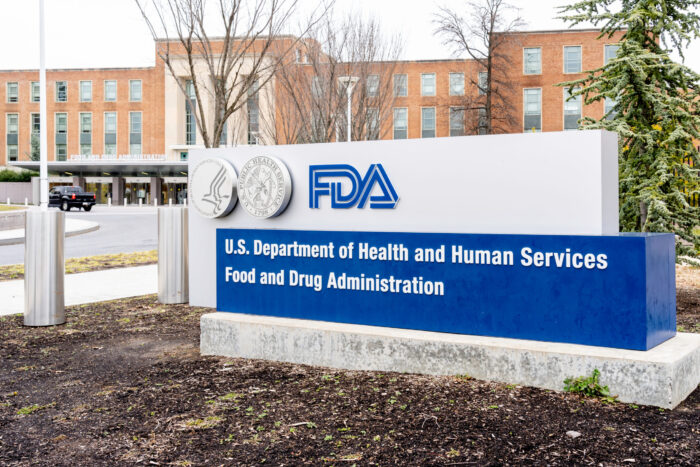 While COVID-19 tests are now widely available, you’re likely aware that they were scarce in the early days of the pandemic. The FDA’s regulations for testing development and release have been blamed for the shortage, with the result being a limited ability of the public to detect the virus early enough to treat serious illnesses. Within a few weeks of the initial virus surge, a Harvard-trained scientist developed an at-home test that was quick and reliable, yet never made it to market thanks to what many would argue were test sensitivity requirements that were overly strict.
While COVID-19 tests are now widely available, you’re likely aware that they were scarce in the early days of the pandemic. The FDA’s regulations for testing development and release have been blamed for the shortage, with the result being a limited ability of the public to detect the virus early enough to treat serious illnesses. Within a few weeks of the initial virus surge, a Harvard-trained scientist developed an at-home test that was quick and reliable, yet never made it to market thanks to what many would argue were test sensitivity requirements that were overly strict.
Prior to the COVID-19 test controversy, much of the criticism of the FDA processes was focused on the prescription opioid crisis. When opioids were introduced in the 1990s, pharmaceutical companies launched a full-scale marketing campaign, leading to an unprecedented increase in opioid prescriptions. The highly addictive nature of the drugs was not disclosed and a national epidemic ensued, with opioid use disorder, opioid overdoses, and a host of other directly related societal problems soaring.
According to the United States Centers for Disease Control and Prevention (CDC), the unprecedented increase in opioid consumption has led to the “worst drug overdose epidemic in [US] history.” The FDA had a direct causal role in the epidemic with a series of regulatory failures that allowed the drugs to be marketed and sold. The AMA Journal of Ethics stated that “The fact that opioid manufacturers disseminated false claims regarding the risks and benefits of opioids for the past 25 years points to a dereliction of duty by the US Food and Drug Administration (FDA)—the federal agency charged with regulating pharmaceutical companies.” In 2017, the President’s Commission on Combatting Drug Addiction and the Opioid Crisis found that the opioid crisis was caused in part by “inadequate oversight by the Food and Drug Administration,” and the National Academy of Sciences (NAS) publicly called on the FDA to overhaul its opioid policies.”
Clearly, both crises—the test shortage and the opioid regulatory failures—had deadly ramifications that could have been avoided. Sadly, the FDA seems to continue to flounder, as the nation has watched the agency handle the oversight of the current shortage of infant formula with a disastrous lack of timely response and intelligent management.
The FDA itself states that “Infant formula…is often used as the sole source of nutrition by a vulnerable population during a critical period of growth and development.” Yet throughout the spring of 2022, infant formula was widely unavailable, and the crisis continues to worsen, a situation for which the FDA is at least partially responsible. I’ll go into this in more detail later in the article, but first I want to talk about how infant formula gets to the market in both the United States and Europe.
Infant Nutrition: The United States Vs. Europe
Now, not to entirely vilify the FDA…
…but in addition to mismanagement of the formula shortage, there are major concerns about the agency’s regulation of the formula that is being supplied to the public.
As I talked about earlier in the article, infants have highly specific needs for nutrition. The composition of what they're fed is critically important for their growth, cognitive development, immune function, and more. However, the current formula recipe requirements put forth by the FDA are based on the outdated Infant Formula Act of 1980 (without even knowing those requirements, I figure you could reckon that things have changed in forty years).
Yet, the FDA has made it formidably difficult to modernize, with the requirements to get infant certified requiring multi-year and multi-million dollar feeding studies. This creates a huge barrier to entry for innovative companies like the afore-mentioned Serenity Kids.
Europe, though, is an entirely different story. The European food standards are among the strictest in the world, yet thanks to a system that is organized and up-to-date, manufacturers can enter the marketplace readily. The European Commission also developed an integrated approach to food safety “from farm to fork,” covering all sectors of the food chain, including feed production, primary production, food processing, storage, transport, and retail sale.
The regulations in Europe are updated every few years with modern science and ingredients, and to encourage innovation, infant feeding studies are not required. As parents learned more about the differences in formula available in the United States and Europe, they began to purchase European formula on the “black market.” However, there are risks involved with going this route, most notably that because you need to go through a third-party vendor that is not regulated, you may end up with a counterfeit product—a risk that many parents are unwilling to take.
The Formula Shortage Disaster
Europe clearly leads the United States in regard to infant formula composition and recipe regulations. Moreover, the European Commission creates the main procedures and tools for the management of emergencies.
What is now evident in regards to the FDA is that the system in place to handle crises is faulty.
 It’s important to understand that thanks to outdated and overly strict requirements from the FDA, the $2.1 billion infant formula industry is dominated by only a handful of manufacturers. The largest supplier of formula in the United States is Abbott Laboratories, the makers of what is probably the most widely-known and relied-upon formula, Similac. Abbott controls 48% of the market.
It’s important to understand that thanks to outdated and overly strict requirements from the FDA, the $2.1 billion infant formula industry is dominated by only a handful of manufacturers. The largest supplier of formula in the United States is Abbott Laboratories, the makers of what is probably the most widely-known and relied-upon formula, Similac. Abbott controls 48% of the market.
In February of 2022, Abbott announced that they would be voluntarily recalling Similac along with Alimentum and EleCare formulas after four babies contracted bacterial infections from consuming those brands. The bacterium, cronobacter sakazakii, can cause severe, life-threatening infections or inflammation of the membranes that protect the brain and spine. The infection can spread through the blood to other parts of the body, inflicting damage on the bowels and other organs. Two of the babies died, and the infections caused widespread panic in American parents.
The FDA officially warned the public about the potential contamination of formulas made in Abbott’s Sturgis, Michigan plant within days of Abbott’s announcement. However, there is evidence that the FDA was warned about safety violations at the plant as early as October of 2021 when a whistleblower informed the agency. The whistleblower claimed that as early as three years prior, Abbott did not destroy an entire batch of formula where problematic micro-organisms had been found because they needed to meet production numbers, then covered up the findings in reports to the FDA.
The FDA is now under fire with accusations for a failure to promptly investigate the claims, which potentially could have prevented the contaminated formula hitting the market and the infant illnesses and deaths—and likely, the resultant shortages.
The closure of the Abbott plant had a widespread, dramatic effect on the availability of infant formula. The shelves were cleared in many stores, and parents relying on formula desperately sought it wherever they could find it—even resorting to trying to make formula at home. The situation has highlighted the danger of allowing an industry to be controlled by limited manufacturers, with meaningful competition shut out by rules and regulations that are mired in politics.
Now, four months later, the situation is even worse. In April, 31% of formula products in the United States were listed as out of stock. This rose to 45% the week of May 8th, then to 70% the week of May 21st.
The escalating crisis is despite actions by the government to try to get formula into the country. The last week in May, President Joe Biden invoked the first two Defense Production Act (DPA) authorizations for infant formula, granting manufacturers the right to add legally binding language to their orders with suppliers that will give them priority over other customers. The United States military was also enlisted to airlift formula from other countries. Still, there is a significant lag in the timeline of the measures and the country’s needs.
The controversy was furthered when, this past week, President Biden disclosed that he was not made aware of the circumstances until April of 2022. The administration has admitted that even when they were informed, they did not anticipate the catastrophic ramifications.
Within the next month, stores are expected to begin to restock as additional shipments of formula arrive from Australia and the U.K. Parents are understandably still in a state of distrust, however, and there has been significant damage done. The crisis has clearly underscored a need for a dramatic overhaul of the formula industry in the United States—an industry that should be given the highest priority given the significance of its impact.
The Need For Change (& How Serenity Kids Is Leading The Way)
Families in the United States are on the verge of a public uprising.
Yet many parents may still not be clear on what they can do to protect the health of their infants. Given the domination of the industry by several big corporations, options may seem limited.
Thankfully, there are industry pioneers who are innovative and dedicated to the health of children, not to their profit margins. I found out about Serenity Kids because I do a lot of investing in the health and the nutrition sector. The company launched in 2018–and I actually not only invested in them but tried some of the baby food myself. (It's so dangerously tasty that I suspect that you as a parent might start stealing it from your baby if you get some.)
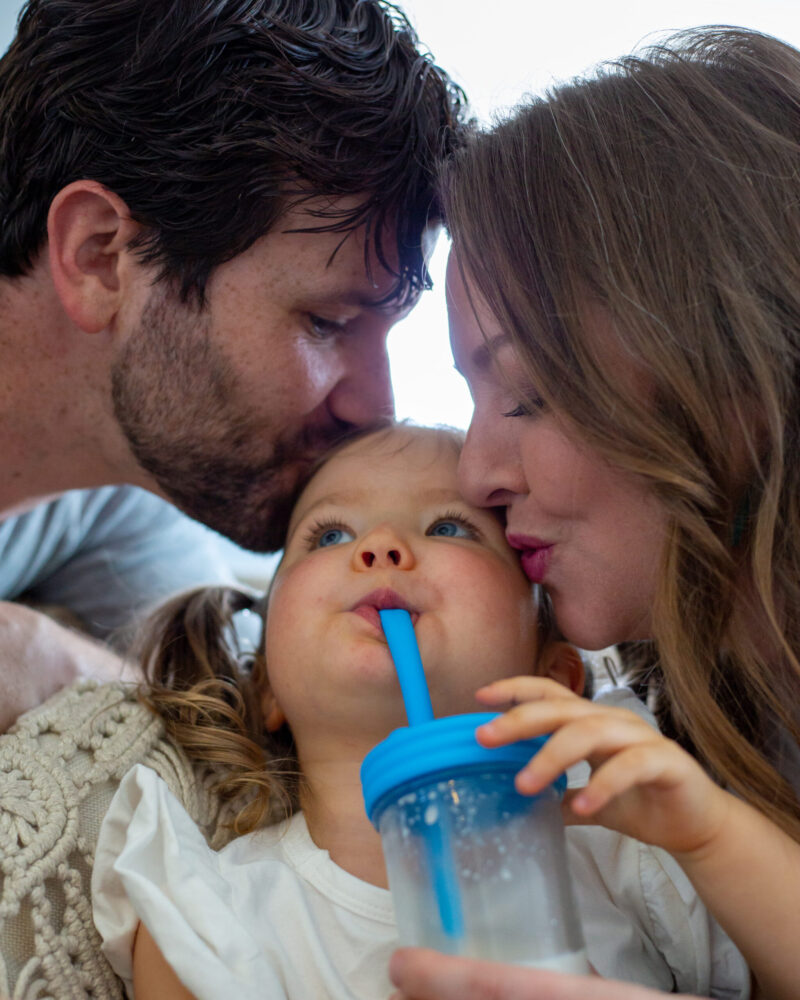 In 2021, Serenity Kids was recognized as the quickest-growing baby food brand, as well as the number two brand by overall sales at Whole Foods Market and in the Natural Retail Channel.
In 2021, Serenity Kids was recognized as the quickest-growing baby food brand, as well as the number two brand by overall sales at Whole Foods Market and in the Natural Retail Channel.
Serenity Kids has created a formula that is more similar to breastmilk than any other. They use the highest quality ingredients like regeneratively farmed grass-fed organic A2 Whole Milk, cocoa butter, inulin, and wild algae oil, and do not include syrups, industrial seed oils, or synthetic folic acid. They are classified as a “toddler” formula because the FDA has not approved them for infants, which is probably not a shock to you at this point in the article. I would have, without a doubt, fed this formula to my own children if it had been available when the twins were infants. (If you want to give it a try, or have friends or family that are parents to infants, you can use and share code BEN for 15% off your first Serenity Kids order.)
My friends Serenity and Joe Carr are the founders of Serenity Kids. When their first child was on the way, Serenity and Joe were profoundly disappointed by the lack of baby food that met their dietary standards, inspiring them to start their own company. Serenity Kids' formula, which contains premium ingredients similar to European formulas, is manufactured in an Ohio facility with the strictest quality protocols in place.
Serenity Kids is also devoted to being environmentally conscious. They hand source ingredients from organic, family-owned farms, support regenerative agriculture, and use eco-friendly packaging, with cases made of 100% post-consumer recycled material.
From the composition of their formula to their commitment to a healthier planet, Serenity Kids is a model of what the infant formula industry leaders could look like if the barrier to entry was not unreasonably high. The entire infant formula shortage was predicated on this lack of diversity in suppliers. Thankfully, infant formula from Serenity Kids has remained available for families—a credit to Serenity and Joe, who should be commended for their leadership and innovation.
Conclusion
The 2022 infant formula shortage in the United States is a public health crisis…
…and the stance that it was profoundly mismanaged—and could have been avoided entirely—is warranted.
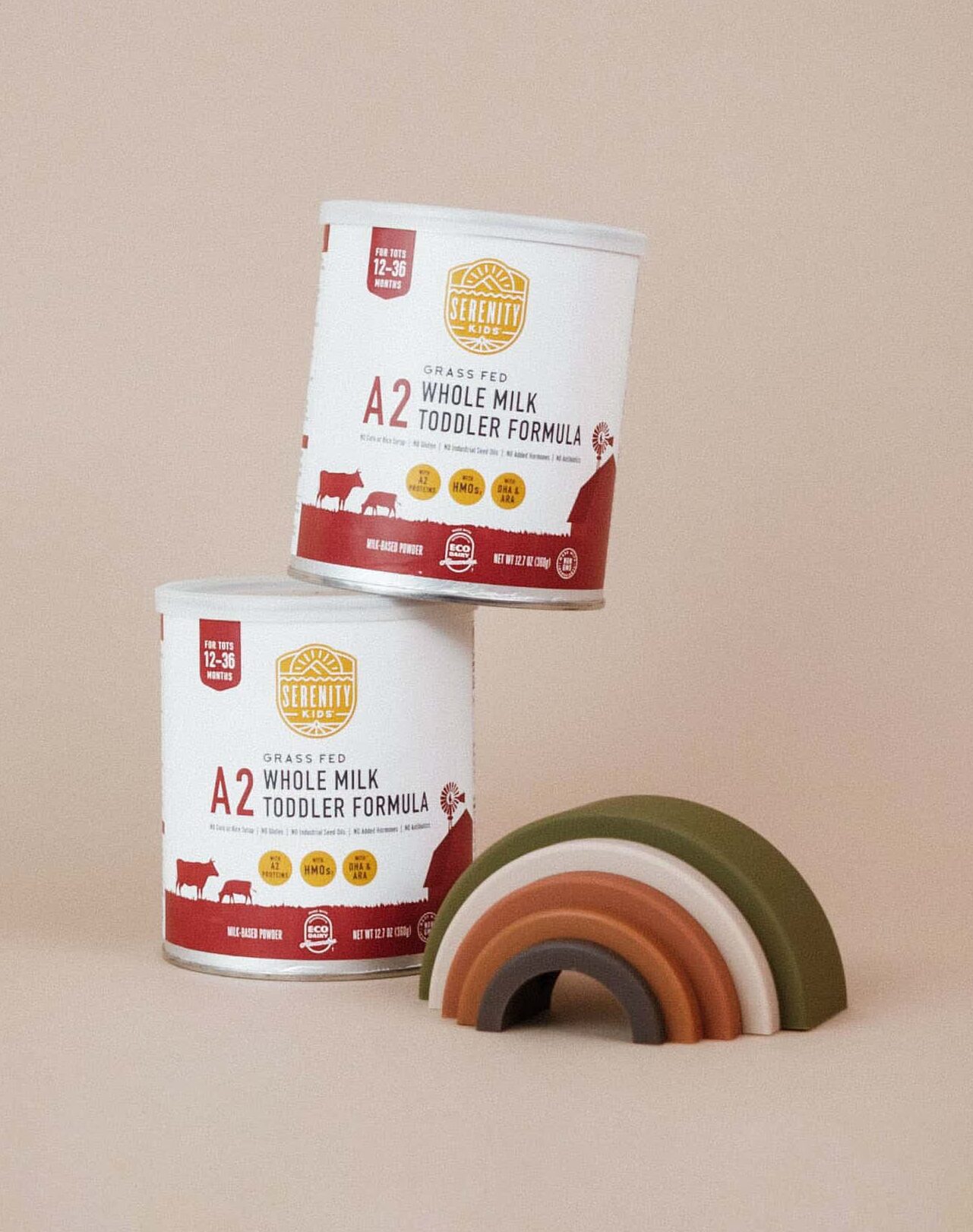 To recap, in October of 2021 a whistleblower alerted the FDA to safety violations at the Abbott Nutrition plant in Sturgis, Michigan. The claims were never investigated, and four months later, in February of 2022, four infants contracted serious bacterial infections from formula produced at the plant, with two of the infections being fatal. The closure of the plant led to widespread formula shortages across the United States, with parents panicking as they faced uncertainty about how to feed their infants. President Joe Biden was not made aware of the shortage until April of 2022, and while he then invoked military measures to try to supply families with formula, at this time the shortages are worse than ever.
To recap, in October of 2021 a whistleblower alerted the FDA to safety violations at the Abbott Nutrition plant in Sturgis, Michigan. The claims were never investigated, and four months later, in February of 2022, four infants contracted serious bacterial infections from formula produced at the plant, with two of the infections being fatal. The closure of the plant led to widespread formula shortages across the United States, with parents panicking as they faced uncertainty about how to feed their infants. President Joe Biden was not made aware of the shortage until April of 2022, and while he then invoked military measures to try to supply families with formula, at this time the shortages are worse than ever.
This crisis has highlighted the need for an overhaul in the infant formula industry in the United States.
If the market had not been controlled by a handful of manufacturers—thanks to the inability of competitors to get past outdated and overly-strict FDA regulations and enter the marketplace—there would have been plenty of formula to feed America's babies.
My friends at Serenity Kids, Joe and Serenity Carr, have been innovators in the infant formula industry since well before this crisis. My support of Serenity Kids stems from a heartfelt desire to serve children and families—with infant nutrition being of primary importance.
Not only does Serenity Kids make a formula that has the ideal composition for an infant, but the company is also committed to making a product in a way that has nothing to do with politics or profits. Their mission statement makes their devotion clear: “We envision a thriving planet where children are fed, raised, and educated to be healthy, happy, creative human beings.”
My hope is that there is an upside to this crisis—that politicians, industry leaders, and rightfully concerned parents work together to restructure and repair an industry that should be of primary importance to this country. The country owes it to families.
Leave your questions, thoughts, or feedback about formula feeding and/or the recalls below. Serenity, Joe, or I will respond! And you must, must, must try a few of their products for yourself, even if you're not a baby. Trust me, you'll love it.

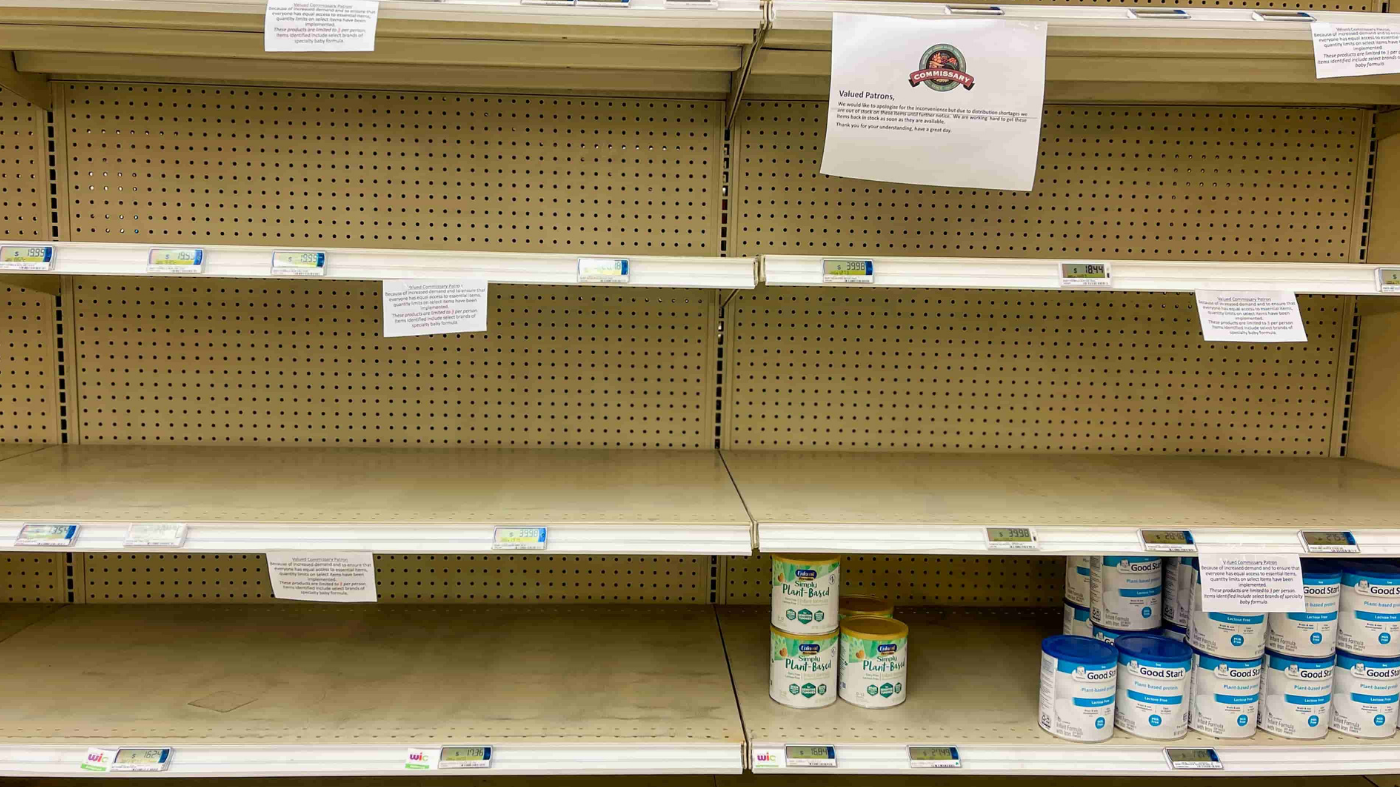
Great post Ben! I am glad you are starting to include this information on your site as it’s not readily available to the majority of people. I knew about the whistleblower through other news sources that most people are unaware of. Thank you for being a shining light for us!
Wow, this is important stuff that I would not have been aware of (as a grandfather whose grand kids are approaching high school or in high school. Great article. Thanks for the education. I’ll get myself more up to speed so I can make better recommendations to parents.